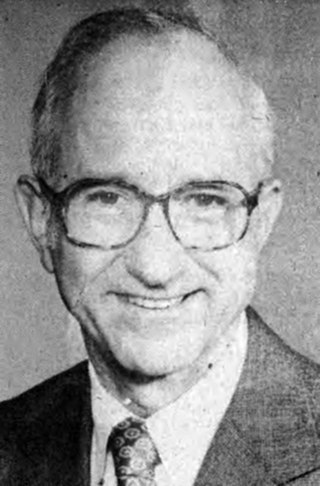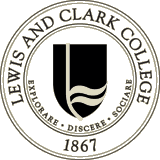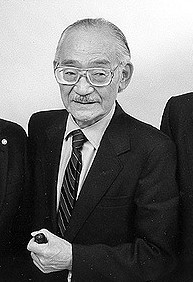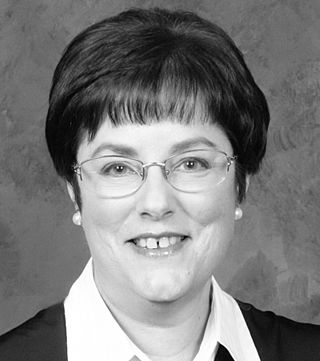
Stanford Law School (SLS) is the law school of Stanford University, a private research university near Palo Alto, California. Established in 1893, Stanford Law had an acceptance rate of 6.28% in 2021, the second-lowest of any law school in the country. Since October 2023, Robert Weisberg has served as its dean.

The University of Michigan Law School is the law school of the University of Michigan, a public research university in Ann Arbor, Michigan. Founded in 1859, the school offers Master of Laws (LLM), Master of Comparative Law (MCL), Juris Doctor (JD), and Doctor of the Science of Law (SJD) degree programs.

Drake University Law School is the law school of Drake University, located in Des Moines, Iowa. Over 330 full-time students attend the institution. Dean Jerry Anderson is in charge of the University. Founded in 1865, Drake Law School is one of the 25 oldest law schools in the country.

Hans Arthur Linde was a German Jewish American legal scholar who served as a justice of the Oregon Supreme Court from 1977 to 1990.

Rives Kistler is an American attorney and judge in the state of Oregon. After college and law school on the East Coast, he moved to Oregon where he worked in private practice before joining the Oregon Department of Justice. Kistler then joined the Oregon Court of Appeals before appointment to the Oregon Supreme Court in 2003.

The Northwestern School of Law of Lewis and Clark College, is an American Bar Association-approved private law school in Portland, Oregon.
The University of Iowa College of Law is the law school of the University of Iowa, located in Iowa City, Iowa. It was founded in 1865.

Marquette University Law School is the law school of Marquette University in Milwaukee, Wisconsin. It is one of two law schools in Wisconsin and the only private law school in the state. Founded in 1892 as the Milwaukee Law Class, MULS is housed in Eckstein Hall on Marquette University's campus in downtown Milwaukee.

The Willamette University College of Law is the law school of Willamette University. Located in Salem, Oregon, and founded in 1883, Willamette is the oldest law school in the Pacific Northwest. It has approximately 29 full-time law professors and enrolls about 332 students, with 120 of those enrolled in their first year of law school. The campus is located across the street from the Oregon State Capitol and the Oregon Supreme Court Building; the College is located in the Truman Wesley Collins Legal Center.

Paul J. De Muniz is a retired American judge in the state of Oregon. He is the first Hispanic Chief Justice in the history of the Oregon Supreme Court. He was elected to the court in 2000, and elected as chief justice in 2006. He won re-election in May 2006 for another six-year term on the state's highest court. De Muniz previously served on the Oregon Court of Appeals for ten years.

Wayne State University Law School is the law school of Wayne State University in Detroit. Wayne Law is located in Midtown, Detroit's Cultural Center. Founded in 1927, the law school offers juris doctor (J.D.), master of laws (LL.M.), online master of studies in law, and minors in law degree programs. Wayne Law's more than 12,000 alumni include judges, justices, law firm partners and government officials working in every major market in the United States and at least 17 countries.
Robert Edward Jones is an American politician and judge in Oregon. He serves as a senior United States district judge of the United States District Court for the District of Oregon in Portland. A Portland native, he previously served as the 84th justice of the Oregon Supreme Court and as a member of the Oregon House of Representatives.

Minoru Yasui was an American lawyer from Oregon. Born in Hood River, Oregon, he earned both an undergraduate degree and his law degree at the University of Oregon. He was one of the few Japanese Americans after the bombing of Pearl Harbor who fought laws that directly targeted Japanese Americans or Japanese immigrants. His case was the first case to test the constitutionality of the curfews targeted at minority groups.

Otto Richard Skopil Jr. was an American attorney and judge in the state of Oregon. The native Oregonian was a United States circuit judge of the United States Court of Appeals for the Ninth Circuit from 1979 to 1986. Previously, he was a United States district judge of the United States District Court for the District of Oregon from 1972 to 1979, and was the chief judge of that court from 1976 to 1979. Of German ancestry, he was a veteran of World War II and received both his undergraduate education and law degree from Willamette University.
Yasui v. United States, 320 U.S. 115 (1943), was a United States Supreme Court case regarding the constitutionality of curfews used during World War II when they were applied to citizens of the United States. The case arose out of the implementation of Executive Order 9066 by the U.S. military to create zones of exclusion along the West Coast of the United States, where Japanese Americans were subjected to curfews and eventual removal to relocation centers. This Presidential order followed the attack on Pearl Harbor that brought America into World War II and inflamed the existing anti-Japanese sentiment in the country.

William & Mary Law School, formally the Marshall-Wythe School of Law, is the law school of the College of William & Mary, a public research university in Williamsburg, Virginia. It is the oldest extant law school in the United States, having been founded in 1779 at the urging of alumnus Thomas Jefferson. As of 2023, it has an enrollment of 606 full-time students seeking a Juris Doctor (J.D.) or a Master of Laws (LL.M.) in the American Legal System, a two or three semester program for lawyers trained outside the United States.
James Alger Fee was a United States circuit judge of the United States Court of Appeals for the Ninth Circuit and previously was a United States district judge of the United States District Court for the District of Oregon. A veteran of the United States Army, his first judicial position was with the Oregon Circuit Court. While a federal judge he made national news for his decision during World War II regarding the application of the exclusion orders that had forced those of Japanese heritage from the West Coast.

Susan Pia Graber is an American attorney and jurist. She is a senior United States circuit judge of the United States Court of Appeals for the Ninth Circuit. A native of Oklahoma, she was the 90th justice of the Oregon Supreme Court from 1990 to 1998. She served on the Oregon Court of Appeals from 1988 to 1990.

The University of Toledo College of Law is the law school at the University of Toledo, and is located on the university's main campus in a residential neighborhood in western Toledo, Ohio. The school is fully accredited by the American Bar Association and is a member of the Association of American Law Schools.

Adrienne Camille Nelson is an American lawyer who is a United States district judge of the United States District Court for the District of Oregon. She previously served as a judge on the Multnomah County Circuit Court from 2006 to 2018 and a justice of the Oregon Supreme Court from 2018 to 2023.
















